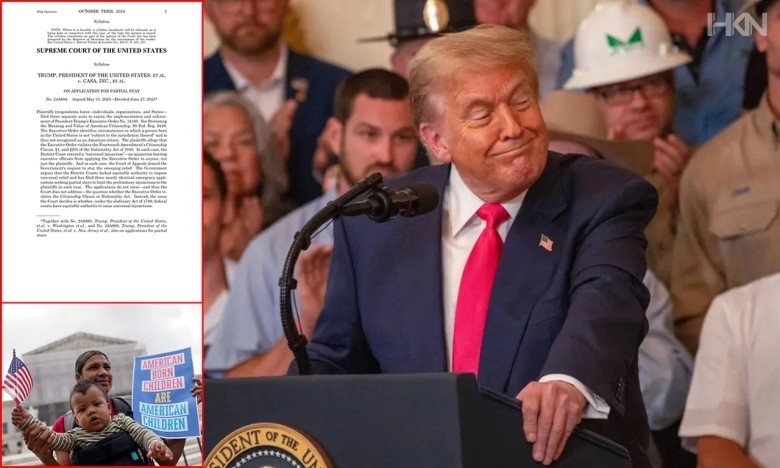views

The Supreme Court ruled Friday that nationwide injunctions by lower court judges likely exceed their constitutional authority. This ruling delivered a major legal victory to President Trump in one of the most closely watched cases of the term. The case involved challenges to Trump’s order to end birthright citizenship and lower courts had issued broad injunctions that blocked it from taking effect.
Justice Amy Coney Barrett wrote the opinion for the conservative majority and emphasized that federal courts do not have the power to monitor the Executive Branch in general. She said their job is to resolve specific legal disputes given to them by Congress.
High Court Says Courts Must Limit Relief To Plaintiffs Only
The ruling did not decide whether ending birthright citizenship was legal but instead said courts cannot stop an executive order from affecting non-plaintiffs. Barrett said when the government acts unlawfully the solution is not for courts to also act unlawfully. The ruling supports the Trump administration’s view that courts should only give relief to people directly involved in a lawsuit.
She wrote that universal injunctions have no historical basis and are not allowed under the Judiciary Act of 1789. Barrett argued that letting courts apply orders nationwide blurs the separation of powers and gives judges more control than intended.
Justice Sonia Sotomayor disagreed and said people affected by unlawful policies deserve protection. Justice Ketanji Brown Jackson also dissented and warned of unchecked executive power but Barrett responded that her view would create an imperial judiciary.
The decision is expected to impact future legal challenges to immigration and other federal policies. It sets a precedent that may limit the ability of single judges to block national executive actions.
















![UC Davis Showdown: Student Shuts Down Hater with Powerful Defense of Trans Community [WATCH]](/upload/media/posts/2025-04/11/uc-davis-showdown-student-shuts-down-hater-with-powerful-defense-of-trans-community-watch_1744363407-s.jpg)


